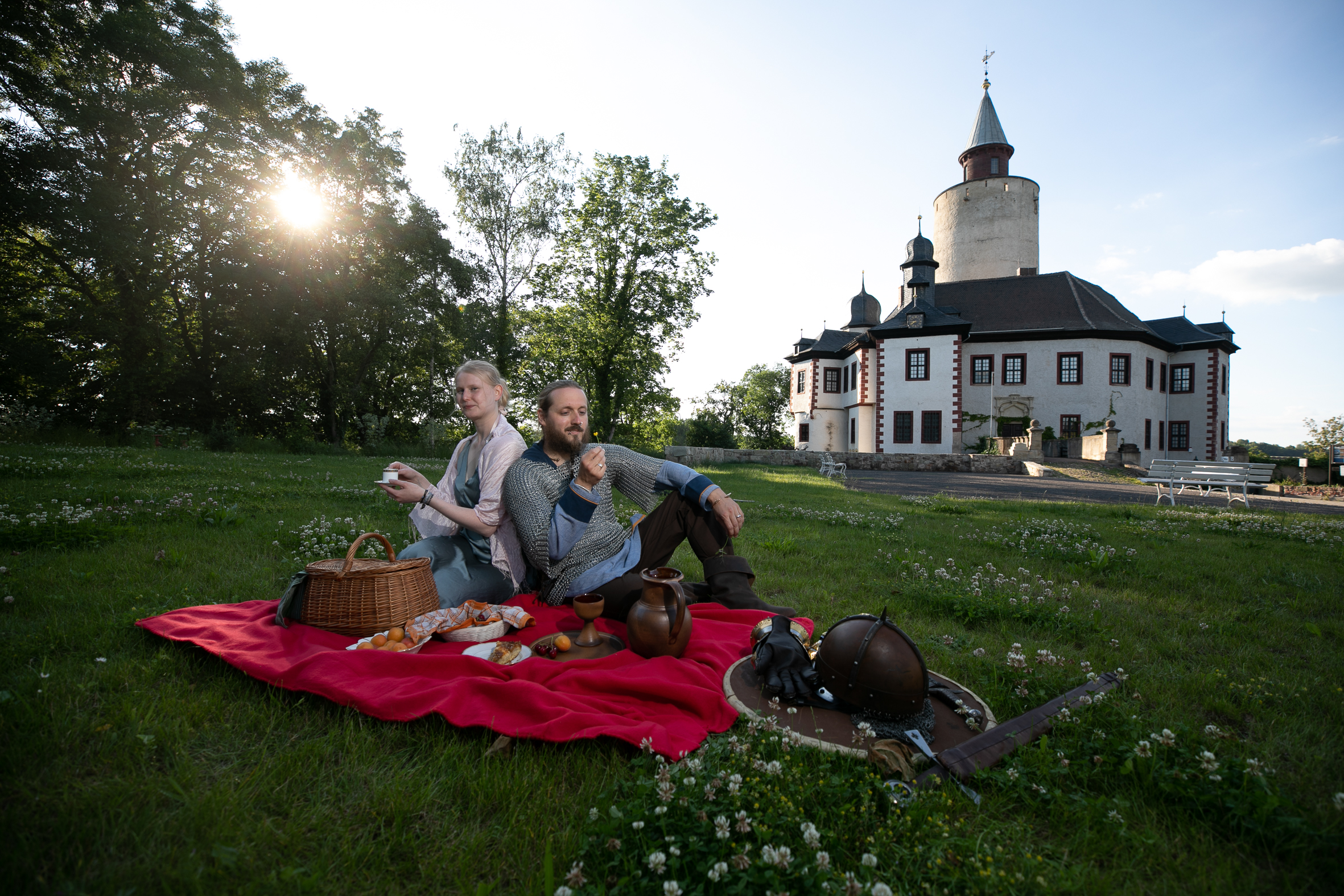How German settlers in 19th century founded a new hometown in Missouri
A motley group of emigrants from Saxony-Altenburg, Dresden region and Hannover stranded on a rock in Mississippi river in 1839. Right beside the river the strict Lutheran settlers founded the town Wittenberg. Frequently the legendary river carried Wittenbergs houses away – that is why only the Wittenberg Boat Club and a crumbling old post office remind of the town today.

After a long journey by ship a group of German emigrants from Altenburg County stranded at this rock in Mississippi in 1839.
The emigration was organized by different clergymen, under the leadership of reverend Martin Stephan from Pirna near Dresden. As a result of social problems after the Napoleonic Wars and tightened taxes in the countryside, parallel to first revolutionary riots, a lot of people in Altenburg region considered to try out their luck in the „new world“. In the beginning they considered Australia as a new home as well, but south from St. Louis in Missouri they were offered 10.000 acre land to a cheap price.
In Winter 1838/39 five ships with settlers from the kingdom of Saxony and the duchy of Saxony-Altenburg headed for the so called „new world“. The devotional emigrates took 900 copies of Luther’s catechism with them on board of the ships. Even during the long crossing the children were taught. All ships reached the US, except for a small boat called „Amalia“, which apparently collided with a bigger ship near France.
Altenburg, Dresden, Wittenberg, Frohna, Paitzdorf and Seelitz in the „new world“
As mentioned before, the settlers arrived in Missouri in 1839. At that time this region still was a nearly uninhabited wilderness. The newcomers probably wouldn’t have survived the first winter, if they wouldn’t have been supported by the Lutheran community in St. Louis. In today’s Perry County the German settlers founded towns, which they named after the regions and towns they came from – like Dresden, Seelitz, Johannisberg, Altenburg, Frohna, Paitzdorf and Wittenberg. Dresden, Seelitz and Johannisberg were later on suburbanized by Altenburg, Missouri. Of course the emigrants only reported the best things to their friends and families in Germany and in the following years a lot of other people from Altenburg region moved to the new founded Altenburg.
You don’t need to fear Indians, wild animals and Mexican soldiers in Altenburg
Reverend Martin Stephan lived a very little moral life in the new world, while he let himself celebrate as a king. When the community finally had realized how badly their spiritual leader had betrayed them, they dismissed him. The first president of the Missouri synod, which has two million members today, was Ferdinand Wilhelm Walter from Langenchursdorf. Gotthold Heinrich Loeber from Kahla overtook the job as reverend in the new founded Altenburg. In a letter to Germany on September 10th, 1839 he described the life in the new world, where the most people at this time did still not live in houses, but in temporary sheds. To comfort his reader he added that one did not have to fear Indians, wild animals or Mexican soldiers in Altenburg.
As one of their first projects, the settlers built a school in august 1839 to provide grammar school education for the children: Religion, Latin, Greek, Hebrew, German, French, English, history, geography, mathematics, physics, natural history, philosophy, music and drawing were on the schedule. The goal was to prepare the pupils for later university studies. In the first year seven boys and three girls were enrolled.
Welcome to Altenburg, Missouri!
In October 2010 historians from the German Altenburg travelled to the American Altenburg to take part in an international conference named „Home is where our story begins“. Already decades before the genealogist Wilfried Piehler from Gera (Thuringia) established first contacts to Missouri. Inhabitants from Altenburg, Missouri, have already a few times visited Altenburg County in Germany. Some of them surprised the Germans by speaking German with Altenburg dialect from 19th century.
On the two-day conference local historians and genealogists from Missouri presented their research on the history of the town. German historians, as Sabine Hofmann from Lindenau Museum Altenburg, described the history of the German Altenburg. On Friday, March 18th, 7pm, Wilfried Piehler and Klaus and Sabine Hofmann will present the results of this conference at Posterstein Castle. To learn more about the history of Altenburg, Missouri, you should take a look at the book „Altenburg Missouri and the surrounding Parishes” (editor: Mary Beth Mueller Dillon, Lynhorst, Indianapolis, 2010).
(by Marlene Hofmann, also published in Ostthüringer Zeitung, March 16th 2011, http://www.otz.de/)



